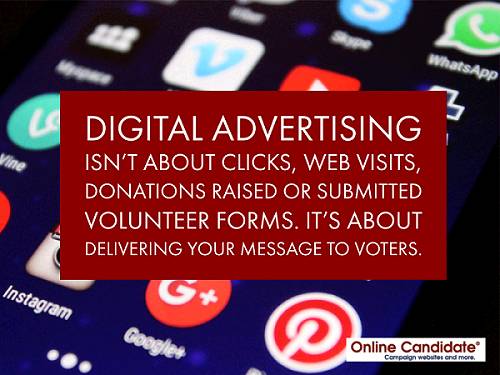Tis’ the season much of the general population dread. No, I’m not talking about having to sit through another Thanksgiving dinner with your in-laws. It’s Presidential election season and that can only mean one thing. Political ads galore! We will mute the TV, turn down the radio, look the other way as we pass a campaign worker taking surveys, at the very hint of a political message. We generalize what the ad message will entail – one candidate bashing another, using bits of pieces of material to distort whole truths, and never fully explain how they plan to fix the issue at hand.
For advertisers, however, it’s a season of opportunity. During this visceral political season, the needs of every candidate from their campaign and marketing teams are similar– the best outreach, the best strategy, use of funds, and proof to how it will get them elected. It’s an opportunity to back a worthy candidate, to showcase what you can do, to gain notoriety, and yes, one to profit from. President Obama’s 2008 campaign was noted as one of the most digitally savvy to date. His campaign, run by a digital ad agency, Blue State Digital, was the first to embrace social media as a strategy, and furthermore, was credited with winning the election.
From the learnings and milestones of the 2008 election, the use of digital and social media as a candidate’s political stage has increased tenfold. The shift changed the way candidates advertise and how their respective agencies buy media. Now with much greater emphasis around digital, specifically, social media. Digiday reported the 2020 presidential candidates have spent $60.9 million in September alone on Facebook and Google, and only $11.4 million in television.
As a member of the general public, I want to receive facts about the candidate, his or her platforms, and what is relevant to me and my family. As an employee at a digital advertising agency, when researching each candidate and the issues at hand, I often pay attention to the ads served. If marketers are running a well-executed advertising campaign and targeting a married white female within the baby boomer demographic, the ads I receive should, in theory, appear more relevant to my life.
I’m sure the terrible bashing and “untruths” will still be a big part of the 2020 campaign efforts, it’s the way of politics! However, with the availability of digital sources and technical advances, imagine the opportunity presented to candidates to serve more relevant ads to a more accepting potential voter. Receiving an ad about the candidate’s platform, recognizing the problems at hand, and promoting actionable solutions rather than just finger-pointing, would be welcomed. I’d vote on that.









